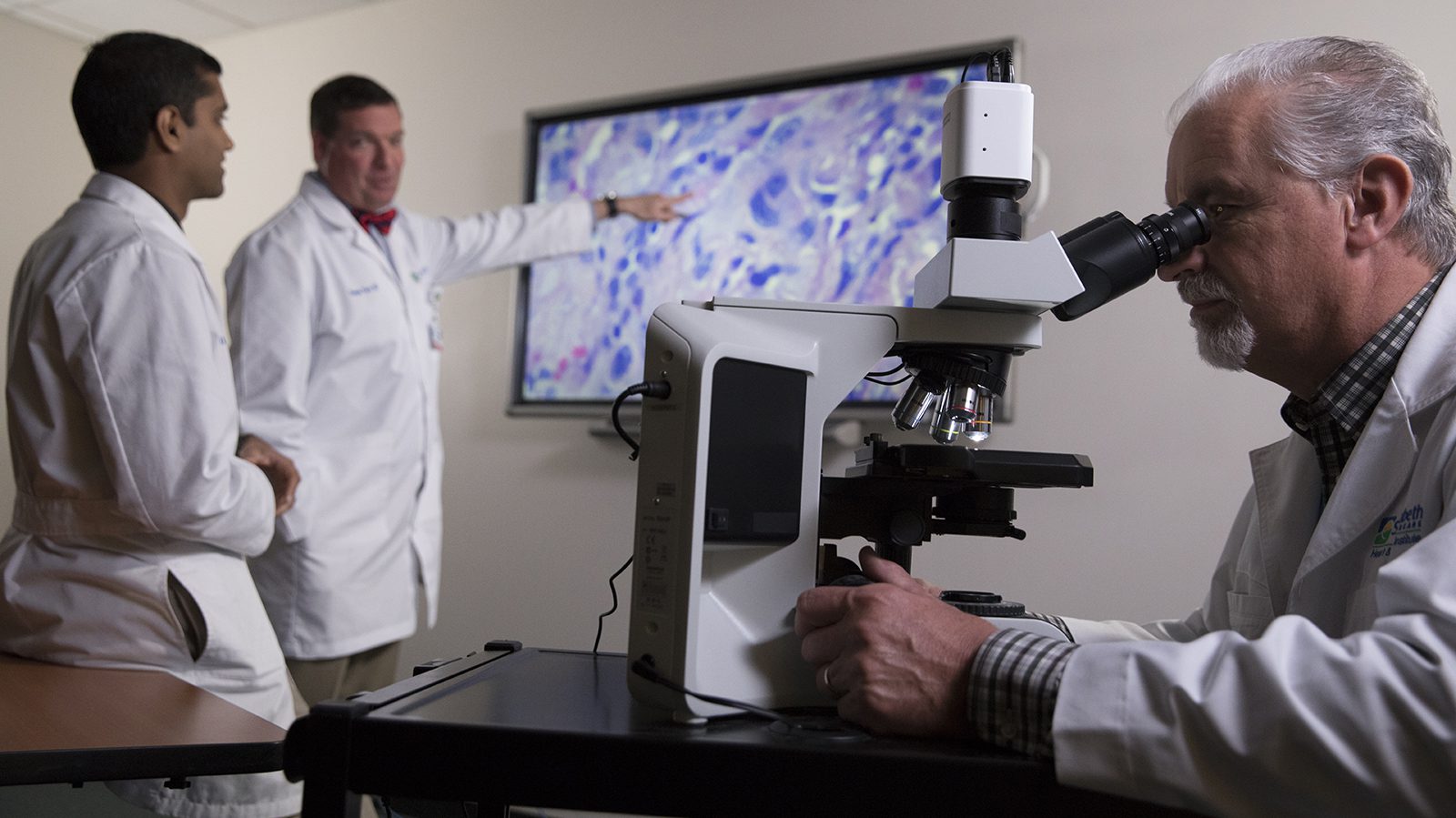Bladder Cancer
Bladder cancer most often starts in the urothelial cells lining the inside of your bladder. Your bladder is a hollow muscular organ located in your lower abdomen that stores urine. Urothelial cells are found in several areas, including your kidneys and bladder and ureters, the tubes that connect them. However, they typically only become cancerous in the bladder.
Bladder cancer is often diagnosed in its early stages and is usually very treatable. Regular follow-up testing and physical examinations are needed for several years after your treatment ends to monitor your health and ensure your cancer has not returned.
Risk Factors for Bladder Cancer
Smoking dramatically increases your risk of developing bladder cancer. Other risk factors include:
- Being male.
- Being older than 55.
- Chronic bladder infections.
- Exposure to certain chemicals.
- Family history of bladder cancer.
- Previous cancer treatment.
- Smoking.

Make an appointment
For more information, please contact your oncologist or the Cancer Care Center at (859) 301-4000.
Symptoms of Bladder Cancer
The most common symptoms of bladder cancer are:
- Abdominal pain
- Bloody urine
- Frequent urination
- Painful urination
- Lower back pain
- Urinary incontinence
Diagnosis of Bladder Cancer
Several diagnostic tests and procedures may be used to diagnose bladder cancer, including:
- CT imaging
- Cystoscopy
- Internal examination
- Retrograde pyelogram
- Tissue biopsy
- Urinalysis
- X-rays
Treating Bladder Cancer
Treating bladder cancer depends on a number of factors, including the cancer type and how far it has progressed.
Treatment options may include:
Your Cancer Care Team
The team includes medical oncologists specializing in immunotherapy and precision medicine, surgical oncologists, radiation oncologists, interventional radiologists, thoracic surgeons, pain management specialists, genetic counselors, pathologists, nutritionists, pharmacists, nurses and support staff. They work together to create a treatment plan that’s just right for you.


